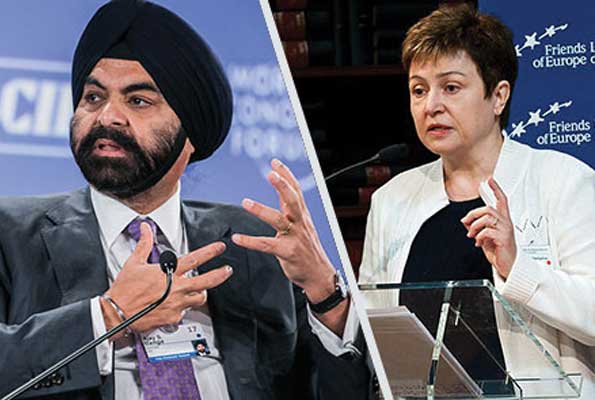Ajay Banga, the president of the World Bank, recently stated that the private sector must get involved in resolving global crises because governments alone lack the multiple billions of dollars required.
He stated during the annual Future Investment Initiative (FII) in Riyadh that the world’s crises, such as climate change and potential pandemics, are now intertwined and that the widening gap between the global north and the global south is concerning because people in the south feel left behind when it comes to growth.
“USD 1 trillion is needed for renewable energy in the emerging markets; there are many multiple trillions needed to address all the challenges,” he stated.
The World Bank is working to help with a debt crisis in Africa, which makes up half of the continent’s book. According to him, the World Bank is the main provider of large-scale and concessional credit for struggling nations.
Ajay Banga responded, “Peace and stability,” when asked what would make his life simpler right now.
He then added, “A degree of cooperation among governments to understand what the global south is going through right now. I think our future depends on them.”
He was referring to Africa, which has territory, resources, and a young population that is expected to reach 1.5 billion people this century.
“If we don’t harness the energy to make life simpler there, then shame on us. They have so many things that could lift the growth,” Ajay Banga added.
He said, “The interest rates are way beyond their capacities.”
The bank is working with African nations like Ghana, Ethiopia, Chad, and Zambia who were receiving grants as the only way they could escape their debt predicament as a result of escalating interest rates.
“We need to be there with a hand on their back or there will be a serious issue in the next ten years,” Ajay Banga concluded.
Meanwhile, amid the ongoing Israel-Hamas conflict, the International Monetary Fund (IMF) has now warned that a prolonged war in the region will impact economic activities and the inflation outlook in countries such as Egypt, Lebanon and Jordan.
“What is happening in West Asia is happening at a time when growth is slow, interest rates are high, the cost of servicing debt that has gone up because of Covid and the war,” Kristalina Georgieva, the fund’s managing director said during the Future Investment Initiative in Riyadh.
“What we see is more jitters in what has already been an anxious world,” Kristalina Georgieva said, while adding, “On a horizon that had plenty of clouds, one more and it can get deeper.”
“Inflation is still high and that requires interest rates to remain high, throwing more cold water on growth,” the official commented, while noting that the Washington-based fund is concerned about the “tragic loss of lives but also destruction and reduction of economic activity in nearby countries.”
“Uncertainty is acute for tourist inflows. Investors are going to be shy to go to that place,” Kristalina Georgieva concluded.



